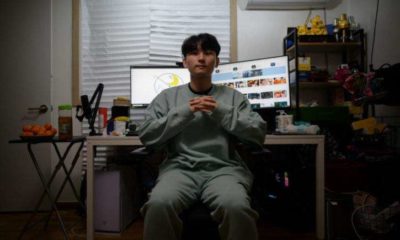World
Former S. Korean minister arrested in Samsung case
Seoul: South Korea’s former Welfare Minister was arrested on Wednesday for his suspected pressure on the national pension fund to approve last year’s merger of two affiliates of Samsung Group. A South Korean independent counsel team probing the scandal involving President Park Geun-hye arrested Moon Hyung-pyo, who was summoned on Tuesday as a reference witness, Xinhua news agency reported. He has been under an emergency arrest since early Wednesday, the special prosecutor team said.
He was detained as his testimony was inconsistent with evidences and other testimonies the team had secured, raising possibility for his intentional destruction of another evidence he owns. It was the first detention of a person suspected of being involved in the scandal since the team officially kicked off its investigation a week earlier.
The detention indicated the independent probe was being centered on bribery allegations between Samsung, Park and her longtime confidante Choi Soon-sil. Moon is suspected of having pressured the National Pension Service into voting for the merger in July last year between Samsung C&T and Cheil Industries despite strong opposition from foreign investors on an unfair merger ratio.
The NPS, which is estimated to have suffered hundreds of millions of US dollars in loss from its investment into the Samsung affiliate, was the largest Samsung C&T shareholder at the time. The deal was extremely crucial to Samsung Electronics Vice Chairman Lee Jae-yong to inherit the management control of Samsung Group, South Korea’s largest family-run conglomerate, from his father, Chairman Lee Kun-hee who has been hospitalised for over two and a half years.
Samsung is suspected of having provided financial assistance to Chung Yoo-ra, daughter of Choi Soon-sil, for her equestrian training. If it proves that Park ordered Moon to support the Samsung merger, the impeached President will face bribery charges that can lead to the maximum sentence of life imprisonment. Samsung’s Vice Chairman Lee has been prohibited from leaving South Korea for his possible involvement in the bribery.
World
Lockdowns in China Force Urban Communities to Defy Censorship and Vent Frustration Online

Shanghai’s rich middle class is leading a wave of online dissent over the strict and prolonged lockdowns imposed in various parts of the country. Chinese internet censorship is struggling as patience is wearing thin in many urban centers, coming up with creative forms of online protests.
Social Media Posts Revealing Lockdown Tension in Shanghai
Drawn-out lockdowns are nothing new in China as authorities insist with the nation’s zero-Covid policy since the start of the pandemic. Currently over This time around, however, metropolitan areas like Shanghai are increasingly difficult to keep quiet, given that its more than 25 million residents have seen weeks of total isolation along with food shortages and many other service interruptions.
Dozens of towns and reportedly over 300 million Chinese citizens have been affected by lockdowns of different severity. As expected, urban netizens have been most outspoken over their difficulties by finding creative ways to get around state censorship and bans placed on topics, news comments and spontaneous campaigns.
Shanghai residents have been using mobile proxies and hijacking seemingly unrelated hashtags to talk about healthcare issues, delivery failures and the overall severity of their situation. The “positive energy” that the Chinese government wants to transmit during the recent prolonged series of lockdowns does not come naturally to those counting food supplies and online censors are working hard to filter words, trending topics and undesired social media sharing.
WeChat groups and message threads are under constant monitoring. Posts questioning the zero-Covid approach have been quickly deleted, including by leading Chinese health experts like Dr. Zhong Nanshan. Video footage is soon censored and protests and investigations are quickly made to disappear.
Where this has not worked, officials have exposed banners with warnings and outright threats like “watch your own mouth or face punishment”, while drones have been patrolling the city skies. Yet, if anything, this has led to further tensions and unspoken confrontation with Shanghai’s educated and affluent middle class.
Creative Online Solutions Harnessing Civic Energy
Announcements by Chinese social media that they would be publishing the IP addresses of users who “spread rumors” have not helped either. Tech industry research has shown that much of Asia’s tech-savvy population has a habit of using mobile proxies and other privacy tools, quickly finding workarounds to browse the internet freely and talk to the world about the hottest topics.
The sheer volume of forbidden posts is already a challenge for the very censorship system, experts explain. Unable to track all trending hashtags, state workers overlook topics that speak about the US, Ukraine or other popular news. Linking human rights elsewhere to their situation, Chinese online dissidents establish their informal channels and “hijack” the conversation to share personal or publicly relevant information about the Covid suppression in their town.
Sarcastic and satirical posts still dominate. Others hope to evade the censors by replacing words from famous poems or the national anthem. One thing is certain – social media, when harnessed with the right creativity, has proven its ability to mount pressure on the government in even some of the most strictly controlled tech environments like China.
























